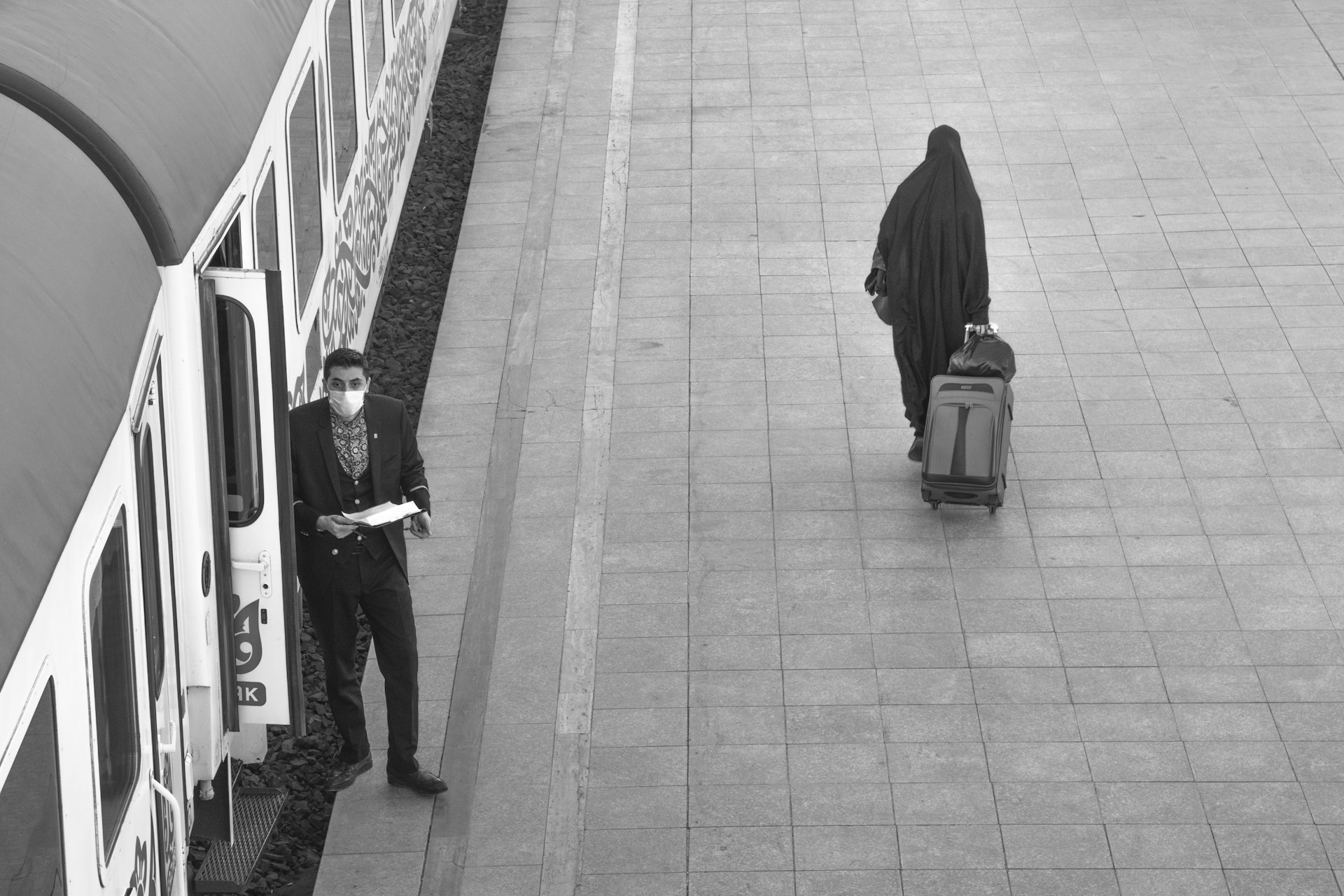How Political Instability Shapes Modern Travel Safety: Risks, Realities, and Smart Strategies


Photo by Javad Esmaeili on Unsplash
Introduction: Navigating Travel in a Politically Unstable World
Political instability is increasingly shaping the landscape of international travel. As global events-from armed conflicts to shifting governmental policies-unfold, travelers are reevaluating their destinations, safety protocols, and travel plans. Recent data shows that safety, influenced by political climate, is now a leading concern for travelers worldwide, overtaking traditional factors such as weather or local attractions [1] .
Key Impacts of Political Instability on Travel Safety
Travel safety is no longer simply about avoiding petty crime or health hazards; it has become deeply entwined with the political realities of destination countries. According to the 2025 Holiday Barometer, 32% of travelers now cite safety as their primary concern when choosing a destination, up from 23% in 2021 [1] . Political instability can manifest in several ways that directly impact travel safety:
- Airspace and Flight Path Restrictions: Geopolitical tensions may lead to the closure of airspace, forcing airlines to reroute, which increases travel time, costs, and complexity. For example, the ongoing conflict in Ukraine has led to rerouted flights between Europe and Asia, resulting in longer journeys and increased ticket prices [4] .
- Sudden Policy Changes: Political unrest can cause abrupt changes in visa regulations, border controls, or entry requirements. This uncertainty complicates travel planning and may lead to last-minute cancellations or stranded travelers [2] .
- Social Unrest and Protests: Destinations experiencing protests or civil unrest pose increased risks for travelers, including disruptions, curfews, or personal safety threats. Nearly 10% of travelers reported postponing trips to the U.S. due to political concerns, with younger travelers more likely to change plans than older generations [5] .
- Economic Instability: Trade disputes and political turmoil often lead to currency fluctuations, inflation, and increased travel costs. The U.S.-China trade tensions are expected to result in higher operational costs for airlines, reduced flight frequencies, and a decline in business travel [3] .
Industry Response and Ongoing Challenges
The travel industry is adapting to these new realities, but challenges persist. A recent global survey by the Adventure Travel Trade Association found that 93% of U.S. operators and 89% of international counterparts anticipate negative impacts from political instability for at least the next year [2] . These impacts include:
- Operational Uncertainty: Sudden policy shifts can disrupt travel businesses, leading to fluctuating demand and operational challenges for airlines, hotels, and tour operators [3] .
- Economic Ripple Effects: Reduced cross-border tourism affects local economies, especially those dependent on travel-related revenue. Communities across North America have lost millions due to decreased travel [2] .
- Safety Protocols and Insurance: Industry leaders emphasize the need for robust risk management, including updated safety protocols and comprehensive travel insurance options [4] .
Practical Steps for Travelers: Staying Safe and Informed
For travelers navigating politically unstable environments, preparation and awareness are crucial. Here is a step-by-step guide to help ensure safety and minimize risks:
- Research Destination Risks: Always check for travel advisories from official sources such as the U.S. Department of State, your country’s foreign affairs department, or reputable travel risk management organizations. Look for updates on political situations, social unrest, and local laws.
- Monitor News and Alerts: Set up alerts for your destination using trusted news platforms. Many travel insurance companies and airlines provide country-specific risk updates through their websites or mobile apps.
- Plan Flexible Itineraries: Consider booking refundable tickets and accommodations. Flexibility allows you to adjust plans in response to sudden changes, such as flight cancellations or border closures.
- Secure Comprehensive Travel Insurance: Choose travel insurance that covers political unrest, trip cancellations, medical evacuation, and emergency assistance. Review policy exclusions and limitations carefully [4] .
- Communicate with Local Contacts: If possible, establish local contacts or connect with your country’s embassy in the destination. They can provide guidance and support in case of emergencies.
- Have Emergency Plans: Know the location of your embassy, safe zones, and exit routes. Maintain digital and hard copies of important documents, including passports and insurance details.
For additional guidance, travelers may contact travel risk management specialists such as World Travel Protection or consult resources provided by the International Air Transport Association (IATA).

Photo by Buddy AN on Unsplash
Industry Resources and How to Access Support
Many travel organizations and coalitions are working to address the challenges posed by political instability:
- The Adventure Travel Trade Association (ATTA) provides industry surveys and risk management resources for operators and travelers. You can find up-to-date research and recommendations by visiting the ATTA’s official website and searching for their global surveys.
- For travel advisories, consult your government’s official foreign affairs website or the U.S. Department of State for destination-specific guidance.
- Travel insurance providers, such as those affiliated with Zurich Cover-More, offer advice and coverage options tailored to political and security risks. You can search for “travel insurance for political unrest” on their official site for more information [4] .
- If you are a business traveler, industry associations like the International Inbound Travel Association (IITA) and National Tour Association (NTA) may offer resources and support for navigating unstable environments. Contact these organizations directly or visit their verified official websites for further assistance.
If unsure about where to find a specific service, use search terms such as “travel risk management,” “destination travel advisories,” or “political unrest travel insurance” on reputable platforms and official agency websites.
Real-World Examples and Case Studies
Case studies highlight how political instability has directly impacted travel safety:
- Ukraine Conflict: Since 2022, Western airlines have rerouted flights to avoid Russian airspace, increasing travel times and costs. Travelers must now factor in longer layovers and higher prices when booking flights to and from Asia [4] .
- U.S.-China Relations: Trade tensions have led to stricter visa policies and reduced flight frequencies, impacting business travel and tourism between the two countries. Airlines have faced operational challenges due to new tariffs and regulatory changes [3] .
- Protests in the U.S.: Political concerns have caused nearly 10% of travelers to postpone trips, with younger travelers especially sensitive to the impact of social unrest [5] .
Alternative Approaches and Solutions
While political instability presents real challenges, there are several strategies travelers and businesses can adopt to mitigate risks:
- Regional Diversification: Consider destinations with stable political climates and robust security infrastructure. Research alternative regions with similar attractions but lower risk profiles.
- Cross-Border Collaboration: Industry coalitions urge policymakers to prioritize negotiation and cooperation over protectionism, which can restore traveler confidence and support local economies [2] .
- Ongoing Education: Stay informed about the latest global travel trends, security threats, and best practices by subscribing to reputable travel news platforms and industry bulletins. Consider attending webinars or workshops focused on travel risk management.
Summary: Key Takeaways for Safe Travel in Unstable Times
Political instability is reshaping the way people approach travel, elevating safety concerns and prompting industry-wide adaptations. Travelers and industry professionals alike must stay informed, plan flexibly, and utilize available resources to navigate this evolving landscape. By following step-by-step safety protocols, leveraging verified resources, and staying adaptable, travelers can continue to explore the world with greater confidence-even in uncertain times.
References
- [1] TravelPulse (2025). How Safety, Politics and Budget Realities Are Shaping 2025 Travel Bookings.
- [2] SYTA (2025). Beyond Borders Tourism Coalition Urges Action as New Tariffs and Political Instability Stall Recovery for Tourism Industry.
- [3] Business Travel News (2025). 2025’s Top Seven Global Risks & Their Impact on the Travel Industry.
- [4] Zurich (2025). What to do when geopolitical instability impacts global travel.
- [5] HospitalityNet (2025). Protests and Politics Prompt Global Travelers to Rethink US Trips.






